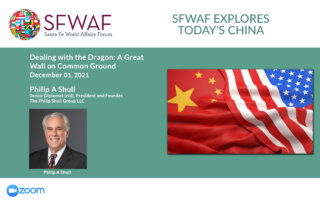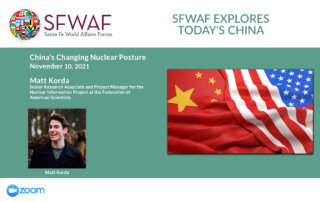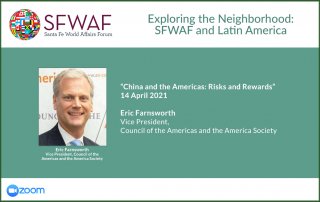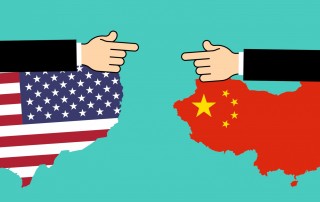Dealing with the Dragon: A Great Wall on Common Ground
December 01, 2021
Philip A Shull
China’s searing experience with famine and food scarcity across the millennia has shaped fundamental aspects of Chinese culture. Indeed, the written word for “population” is composed of the characters of “person” and “mouth” – very different from the Western “per capita”, i.e. “per head.” With four times the population and one-fifth the arable land of the United States, feeding the people has been THE top priority of Chinese leaders since 1949. Despite some horrific failures in the 1950’s and 60’s, achieving food security for nearly every mouth is one of the PRC’s most shining accomplishments.
As China’s wealth and appetite has grown, it has become a tantalizing market for the U.S. and other food and agricultural exporters. But while China buys over one-third of all soybeans grown in the United States and over 60% of the global soybean market, China’s obsession with food self-sufficiency, disregard of international trade standards, and use of agricultural imports as a political tool has exasperated negotiators and constrained billions in trade with the U.S. and others. China’s past has made it suspicious and even dismissive of international institutions such as the WTO. Working in concert with other countries to bring China’s agricultural trade policies into line with its international commitments is one way to help make this critically important nation a responsible and predictable global partner.

Mr. Philip A. Shull is a consultant, expert witness, author, and speaker on China, international trade, food security, and economic/market development. He retired as a senior U.S. diplomat in 2016 after serving for over 30 years with the U.S. Department of Agriculture, directing offices in China (including Mongolia), Korea, Argentina (including Uruguay and Paraguay), the Philippines, and Hong Kong/Macao, as well as Washington. His final diplomatic position was Minister Counselor for Agriculture at the U.S. Embassy in Beijing, USDA’s largest and most important post.
As Minister Counselor, Mr. Shull oversaw the commodity analysis, capacity building, trade policy, and marketing and promotion work of all five USDA offices across China. In all of his overseas postings he worked with his counterparts in other embassies to advance common food safety, market access, and agricultural sustainability issues. In his Washington postings, Mr. Shull served in various capacities involving economic analysis, trade policy, and export expansion, including as director of international marketing. Mr. Shull is an experienced trade negotiator on bilateral and multilateral agricultural and food safety issues, and served as U.S. delegation leader and spokesmen in meetings and conferences on various agricultural issues. He has advised hundreds of companies and trade associations across the value chain. All of Mr. Shull’s work has worked toward advancing the global food security and agricultural sustainability.







 In late September, the US-Chinese relationship took a turn for the worse in economic and national security terms. What happened? What is the state of play and what does this mean for US companies and other American businesses in terms of trade with our single largest trading partner? What is the state of the Chinese economy? Are the Trump administration’s tariff wars justified? Are they effective? Or has the relationship between these two giants soured so much that economic disagreements also affect national security and other interests?
In late September, the US-Chinese relationship took a turn for the worse in economic and national security terms. What happened? What is the state of play and what does this mean for US companies and other American businesses in terms of trade with our single largest trading partner? What is the state of the Chinese economy? Are the Trump administration’s tariff wars justified? Are they effective? Or has the relationship between these two giants soured so much that economic disagreements also affect national security and other interests? Hank Levine is a Senior Advisor with the Albright Stonebridge Group — a strategic advisory firm in Washington, DC. As a senior member of the firm’s multimillion-dollar China practice Mr. Levine helps international firms deepen their interactions with government and non-government entities in China and resolve business issues.
Hank Levine is a Senior Advisor with the Albright Stonebridge Group — a strategic advisory firm in Washington, DC. As a senior member of the firm’s multimillion-dollar China practice Mr. Levine helps international firms deepen their interactions with government and non-government entities in China and resolve business issues.
